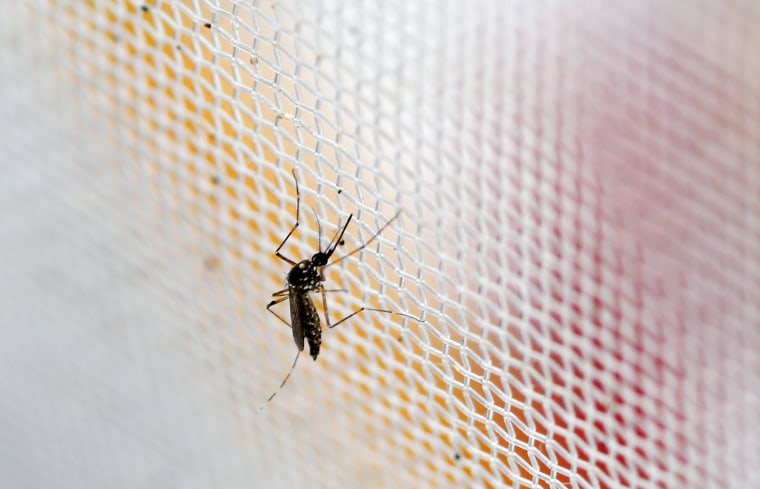Travelers planning a Zika-free trip this summer might want to take note: Europe’s not entirely safe from the virus.
The Zika virus is likely to spread to parts of Europe this summer, although it won’t spread like it has in central and South America, the World Health Organization said Wednesday.

Just as with everywhere else Zika is spreading, the risk depends on mosquitoes — especially the Aedes aegypti and Aedes albopictus species most likely to carry the virus.
Aedes aegypti is the main carrier and it thrives in warm regions, WHO said.
“In the European Region, it is established primarily in the Mediterranean basin and in particular in Albania, Bosnia and Herzegovina, Bulgaria, Croatia, France, Germany, Georgia, Greece, Israel, Italy, Malta, Monaco, Montenegro, Romania, San Marino, Slovenia, Spain, Switzerland, Turkey and Vatican City,” WHO said.
Related: Here's What a Zika Infection Looks Like
But the Asian tiger mosquito, also known as Aedes albopictus, can tolerate cooler weather and can also spread Zika. Zika’s a close relative of the dengue and chikungunya viruses and health experts look to where they have been found to predict Zika’s spread.
“Outbreaks of dengue (Madeira, Portugal, in 2012 and Croatia and France in 2010) and chikungunya (Italy in 2007) have been reported in the region in the past few year,” WHO said. “In all these cases, A. albopictus was the main vector, except in Madeira, where it was A. aegypti.”
"In the European Region, it is established primarily in the Mediterranean basin."
The good news is that two-thirds of European countries have a low risk of Zika.
“The new evidence published today tells us that there is a risk of spread of Zika virus disease in the European Region and that this risk varies from country to country,” said. Dr. Zsuzsanna Jakab, WHO Regional Director for Europe.
Zika's spreading fast across Central and South America and health officials say there will certainly be cases and probably limited outbreaks in the United States once the weather gets warmer and mosquitoes start to get really active.
WHO and the Centers for Disease Control and Prevention have warned pregnant women, or those who might become pregnant, to stay away from areas where Zika is spreading.
And men need to make sure they don’t infect their sexual partners. The virus often doesn’t cause symptoms in the people it infects, but it can cause serious birth defects and, in rare cases, severe side-effects in adults.
It has killed a man in Puerto Rico and several U.S. babies have already fallen victim to Zika-related birth defects.
Congress and the White House are fighting over funding for Zika preparedness and research. The House has delayed until Thursday a scheduled vote on one measure the White House has threatened to veto, saying it's far too little.
